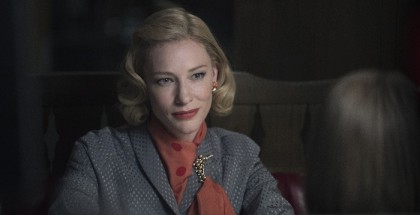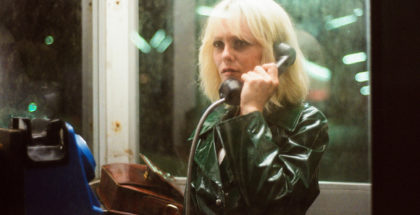VOD film review: The Invisible Life of Eurídice Gusmão
Review Overview
Cast
8Emotions
8Visuals
8David Farnor | On 23, Oct 2021
Director: Karim Aïnouz
Cast: Carol Duarte, Júlia Stockler, Gregório Duvivier
Certificate: 18
“I have discovered what it means to be a woman alone in this world.” Those are the words of Guida (Julia Stockler) in a letter to her sister, Eurídice (Carol Duarte). It’s a letter that is never delivered, which only reinforces the suffering both women endure in Karim Aïnouz’s moving, absorbing melodrama.
The word “melodrama” can easily conjure up images of histrionics and over-acted confrontations, but Aïnouz leans into the genre of Martha Batalha’s 2016 novel, which is the basis of this screenplay, with a sweeping emotional scale that’s operatic rather than overcooked. The film whisks us back to 1950s Brazil, where we meet Eurídice, a piano player with dreams of moving to Vienna to study at the prestigious conservatory there. While she’s a quiet, sensible figure, her sister, Guida, is a wilder sort, eloping with her latest love to start a new life overseas. But that elopement turns out to be the start of a long-term separation, as Guida’s dream turns sour, leaving her returning home pregnant without the father – only for her disapproving, misogynistic dad (Antonio Fonseca) to disown her and, to add insult to injury, make sure that neither sibling knows the other is living just around the corner.
Eurídice‘s hopes for romantic happiness are just as dashed, as her dad finds a purportedly respectable suitor for her – the horrible Antenor (Gregório Duvivier), whose marriage to Eurídice opens the door for harrowing, non-consensual intimacy. While her professional aspirations are cruelly pushed aside by the patriarchal pressures around her, Guida also finds herself struggling to keep going in Rio’s slums, with only the support of sex worker Filomena (Bárbara Santos).
And yet keep going both women do, and there’s something poignantly resilient about their dignified determination in the face of structural sexism in every avenue of their lives. The script, by Aïnouz, Murilo Hauser and Inés Bortagaray, resists the temptation to skim over the surface miserabilism, portraying everyone we meet as a rounded, nuance human – building on the superb, stoic performances by its two leading women. The result is a lengthy running time that’s daunting at first, but also a rich, layered drama that, thanks to DoP Hélène Louvart, is drawn with vivid, lavish colour that heightens every emotion.


















